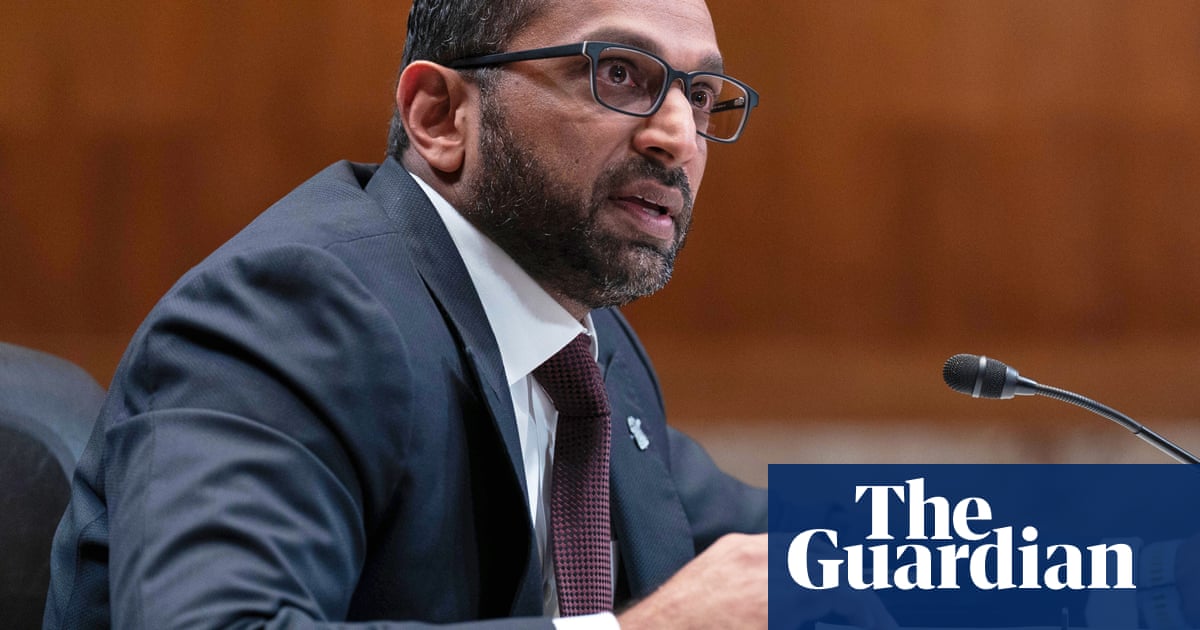TheFBIdirector, Kash Patel, has scrapped a watchdog team set up to scrutinise a warrantless surveillance law he previously claimed was being abused to target supporters ofDonald Trump.
He has ordered the closure of the FBI’s office of internal auditing, a unit set up during Trump’s first presidency to uncover misuses of a contentious part of theForeign Intelligence Surveillance Act(Fisa),the New York Times reported.
The office was established in 2020 byWilliam Barr, the then attorney general, following criticisms that Fisa’s section 702 – which allowed for the electronic tracking of foreign nationals – had instead been used to surveil Americans they had been in contact with.
Patel, who was a vocal critic of theFBIbefore being confirmed as Trump’s nominee as its director, has frequently taken aim at Fisa, which has been more commonly criticised by left-leaning civil liberties groups.
During his Senate confirmation hearings, Patel appeared to retreat from his previous stances by saying he he saw Fisa as a vital tool for collecting information and protecting national security.
Closing the office set up to oversee Fisa could renew calls for the law, which was extended last year after heated debate, to be scrapped when it comes up for renewal again in 2026.
Critics have expressed concern that section 702 – which legalised Fisa in 2008 as part of then president George W Bush’s “war on terror” – allows the government to collect information without a warrant from foreign targets even if they are communicating with US citizens, arguing that it violates Americans’ constitutional right to privacy.
Patel came to prominence as a Republican congressional staff member of the House of Representatives’ intelligence committee in 2018 by criticising the FBI’s applications under Fisa to wiretap a former Trump campaign adviser during the Russia investigation. The investigation had been launched into allegations that the Kremlin attempted to interfere in the 2016 presidential election.
Although many of Patel’s claims subsequently proved to be baseless, they supported Trump’s claim that the Russia inquiry was part of a “deep state” hoax.
The office of internal auditing – the unit Patel is closing – was established after an inspector general’s report in 2019 into the FBI’s investigation revealed a different set of concerns, some of them unconnected with Trump.
In response, Barr issued an order the following year stating the need for a “robust internal compliance program … to ensure faithful compliance with the laws, policies, and procedures that govern [FBI] activities”.
“To enhance the FBI’s existing compliance efforts, the director of the FBI is taking steps to build a more robust and exacting internal audit capability, including the creation of an office focused on auditing the FBI’s national security activities,” Barr wrote, explaining the new unit’s purpose.
A separate office would be set up and headed by a senior FBI official to make sure that “rigorous and robust auditing” is carried out, he added.
The FBI has not commented on the latest developments.
But the New York Times reported that both offices had been absorbed into the bureau’s inspection division, while Cindy Hall, the leader of the office of internal auditing, had abruptly retired.
